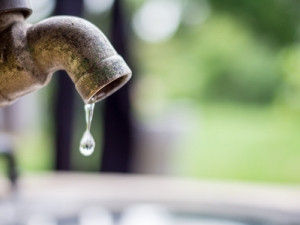
A mobile application developed at the University of Cape Town (UCT) is helping in water conservation.
The app - Drop Drop - was created by the Information for Community Services (iCOMMS) interdisciplinary team, based in UCT's Department of Information Systems. The app is freely available for all who wish to play their part in responsible water usage.
The app is currently only available to Android users, but plans are under way to include it in the iStore.
iCOMMS says with a meagre 27.5% of potable water left in Cape Town's six major dams and the implementation of Level 3B water restrictions, there is an obvious need for South Africans to work together to save water.
It adds that Drop Drop is a mobile application which is designed to do just that. Led by Ulrike Rivett, professor in the Department of Information Systems and founder of the app, the Drop Drop team piloted the project in rural communities in 2015. Here, they were able to test the app's ability to assist with water management and improve service delivery.
The iCOMMS team then collaborated with the City of Cape Town to assess the impact of Drop Drop on water demand management and water conservation at a household level.
Megan McLaren, UCT master's student and iCOMMS team member, says: "The pilot project has demonstrated that making use of the app, even if only briefly, consistently reduced households' water consumption compared to their own historic usage patterns, as well as compared to individuals that were not given access to the application."
She says the plan for 2017 is to expand the user base and test additional mechanisms, which are aimed at making the app more effective at creating lasting change.
Currently, individuals can use the app to assist them in tracking daily water usage, predicting monthly bills and learning new ways to conserve water.
"There are also details about who to contact regarding water problems, advice on how to save water in your household and guidance on how to detect leaks," she says.
While the app was piloted with rural communities, the target market is mid- to high-income households. This is where the majority of high residential water consumption occurs.
"Affluent users present one of our best opportunities for reducing water consumption," says McLaren.
There is an opportunity for the development of a similar programme for lower-income households using a basic mobile phone, but the context is different, she adds.
"For example, it would be more likely that people may be using shared water points and would be unable to track their individual consumption against a shared meter."
The iCOMMS team has attempted to make the app more accessible by ensuring the only costs are for data downloads and not for functioning.
"We are currently working on the conversion of the app to make it available for Apple users, and it should be available in the next month or two," McLaren says.
In addition to the conversion, the short-term plan for Drop Drop includes enhancing the application to drive behaviour change.
"We hope to see it making a significant contribution to creating awareness of citizens' water use and shifting people's practices to be more sustainable."
Share